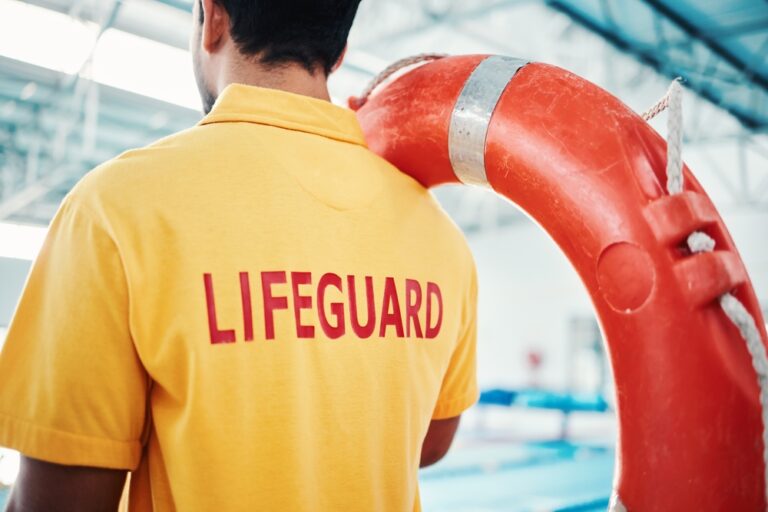Are you a lifeguard in the United States looking to stay sharp and ensure the safety of those around you? Lifeguard recertification is a crucial step in maintaining your skills and knowledge so you can continue to save lives with confidence. This blog post will guide you through the entire recertification process, highlight its importance, and provide you with practical tips to make the experience as seamless as possible. Whether you’re a seasoned lifeguard or just beginning your career, this guide has something for everyone.
The Importance of Lifeguard Recertification
Lifeguard recertification isn’t just a bureaucratic requirement; it’s a vital practice to ensure that lifeguards remain adept at their duties. Over time, techniques and protocols evolve. Staying updated means you’re well-versed in the latest life-saving methods.
Recertification reinforces your ability to perform under pressure. Given the critical nature of lifeguarding, it’s essential to refresh your skills regularly.
Finally, compliance with local and national regulations is mandatory. Lifeguards must meet specific standards to keep their certifications valid and continue working legally.
What to Expect During Recertification
When you go through recertification, you’ll experience a mix of classroom instruction and hands-on training. This ensures you’re adept at theoretical knowledge and practical skills.
Expect rigorous testing of your physical abilities. Swimming, treading water, and rescue techniques will be evaluated.
You’ll also undergo updated training in CPR and first aid. These are fundamental skills that require regular practice to maintain proficiency.
How Often Should You Get Recertified?
The frequency of recertification varies depending on the certifying organization. Typically, lifeguards need to recertify every two years.
It’s important to check the specific requirements of your certification body. For example, the American Lifeguard Association has its own set of guidelines.
Keeping track of your certification expiry date is crucial. Mark it on your calendar and set reminders well in advance.
Choosing the Right Recertification Course
Not all recertification courses are created equal. Selecting the right course can make a significant difference in the quality of your training.
Look for accredited courses recognized by reputable organizations like the American Lifeguard Association. Accreditation ensures that the course meets high standards.
Consider the course format that suits you best. Options range from intensive weekend courses to more extended schedules over several weeks.
Preparing for the Physical Requirements
Physical fitness is a key component of lifeguard recertification. Start preparing well in advance to ensure you meet the necessary standards.
Focus on building endurance through cardiovascular exercises. Swimming laps, running, and cycling are excellent options.
Strength training is equally important. Incorporate exercises like push-ups, sit-ups, and weightlifting into your routine.
Refreshing Your CPR and First Aid Skills
CPR and first aid are critical skills for any lifeguard. During recertification, these skills are retested to ensure you can perform them correctly.
Practice makes perfect. Regularly review your CPR and first aid techniques using online resources or refresher courses.
Stay updated with the latest guidelines from organizations like the American Heart Association. They periodically update their protocols based on the latest research.
Understanding New Lifeguarding Techniques
Lifeguarding techniques evolve over time. During recertification, you’ll likely learn new methods that improve your effectiveness.
Stay curious and open-minded. New techniques are designed to enhance your ability to save lives efficiently.
Don’t hesitate to ask questions during your recertification course. Instructors are there to help you understand and master new skills.
The Role of Technology in Lifeguard Recertification
Technology plays an increasingly important role in lifeguard training and recertification. Online courses and simulations offer new ways to learn and practice.
Consider incorporating digital tools into your preparation. Apps and online platforms can provide valuable resources and practice scenarios.
Stay informed about technological advancements in lifeguarding. Modern equipment and tools can significantly enhance your capabilities.
The Benefits of Group Training Sessions
Recertifying with a group can be beneficial. Group sessions offer opportunities for teamwork and peer learning.
Sharing experiences and tips with fellow lifeguards can provide new insights. You might discover new strategies for handling challenging situations.
Group training also helps build camaraderie. A strong sense of community among lifeguards can enhance overall effectiveness and morale.
Common Challenges in Recertification and How to Overcome Them
Recertification can be challenging, but understanding common obstacles can help you prepare better.
One common challenge is balancing recertification with other commitments. Plan your schedule carefully and prioritize your training.
Another challenge is staying motivated. Setting specific goals and rewarding yourself for milestones can help keep you on track.
The Importance of Continuous Learning
Lifeguard recertification is not a one-time event but part of a lifelong learning process. Stay committed to continuous improvement.
Attend workshops, seminars, and additional training sessions whenever possible. These opportunities can provide new knowledge and skills.
Read up on the latest research and developments in lifeguarding. Staying informed will make you a more effective and confident lifeguard.
Final Words
Lifeguard recertification is a crucial step in ensuring the safety and effectiveness of lifeguards. By staying updated with the latest techniques, maintaining physical fitness, and continuously learning, you can excel in your role and save lives with confidence. If you’re ready to take the next step in your lifeguarding career, consider signing up for a recertification course with the American Lifeguard Association. Stay sharp, stay safe, and continue making a difference.




